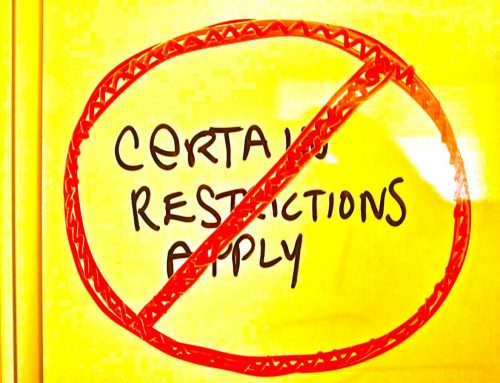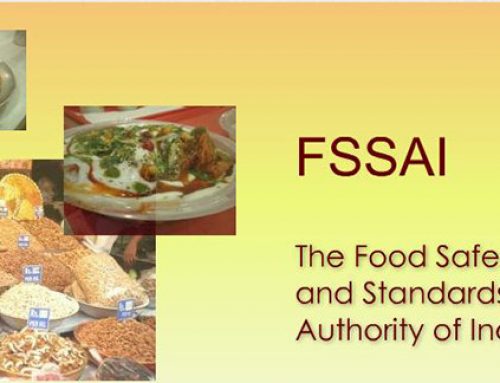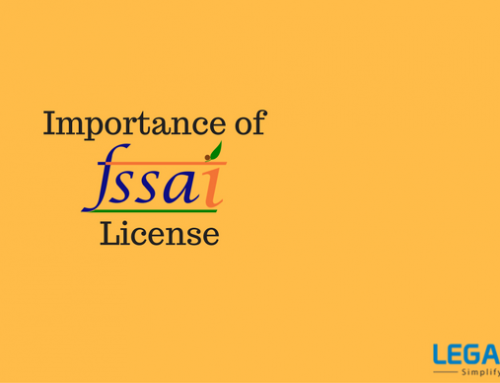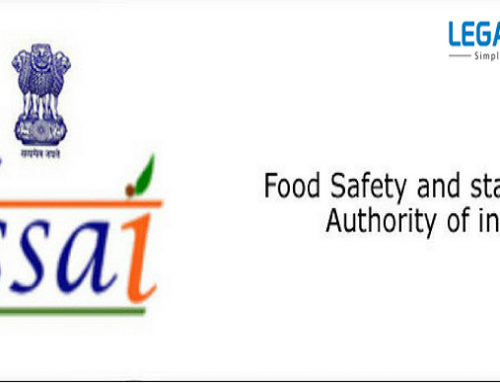FSSAI Registration is important to ensure that there is a healthy and hygienic supply of food and food products. FSSAI is an abbreviation for Food Safety and Standard Authority in India it is the body established in the year 2008, under the Food Safety and Standard Act, 2006 this act is a consolidating statute which relates to food safety in India. It focuses on the promotion and protection of the public health through the regulation of the food safety. The headquarter of FSSAI is in Delhi it has other six offices in Delhi, Chennai, Kolkata, Mumbai, Guwahati, and Cochin.
FSSAI Registration
FSSAI Registration and Licensing is important and, mandatory for every entity or individual who owns any form of the food business. However, the small business organizations are exempted from such a rule but they should get themselves registered with food authority. For easy going, one can also apply for online registration and licensing.
- Registration under FSSAI enhances the credibility of the business.
- It helps the consumer to trust the food items in respect of the food quality.
- It promotes food innovations.
- It removes multiple regulations on receiving approvals.
- Without compromising the safety of the consumer it facilitates the trade.
Types of FSSAI License
There are three categories with different kinds of annual turnover and these categories are:
- FSSAI basic registration
- For a business with annual turnover of INR 10 lakhs
- The basic registration is for small business.
- It can be upgraded to the sales license as the sale graph increase.
- There is no issuance of FSSAI license number as the product may or may not be registered.
- FSSAI State license
- For a business with an annual turnover of INR 12 lakhs to INR 20 crores.
- The FSSAI registration number of 14 digits shall be printed on the back of a product.
- FSSAI Central license
- For the business with annual turnover more than INR 20 crores.
Documents required for FSSAI basic registration
The following documents are required for the FSSAI registration:
- Passport size photograph of the applicant
- Identification proof such as:
- Voter ID, or
- Aadhar card
- Permanent address with address proof
- Phone number
- The copy of property papers
- NOC and A copy of rent agreement (if rented)
Documents required for FSSAI State/Central License
- Form B application should be duly completed and signed by the proprietor/partner/ or authorized authority.
- Blueprint or Layout Plan of:
The processing unit in the complete dimension with an allocated area which is dedicated to operations activities.
- Complete address and contact details of the directors along with the list of directors.
- List of equipment and machinery along with their names and installed capacity in case of manufacturing processing unit.
- Photograph, Identity proof, and address proof which is issued by the concerned government authority.
- In case of manufactures, the list of food category to be manufactured.
- Authority letter with the name.
- Letter of the person nominated by the manufacturer.
- Letter of the alternative reasonable person.
- By government recognized laboratory on food testing a report of Chemical and Bacteriological analysis of the water which is to be used in the food product as an ingredient.
- Proof of possession of the premises.
- Partnership deed/ Memorandum of Association/ Article of Association.
- In case of cooperative society the copy of certificate obtained under the Co-operative act.
- In case of re-label, NOC from the manufacturer.
- Food safety management system plan or certificate.
- For meat and meat processing plant the details of raw material and its source.
- Pesticide report from the Government recognized laboratory of water in case if the manufacturer deals in a water like drinking water, mineral water, carbonated water etc.
- NOC from the State Pollution Control Board, from the municipality or a local body.
Documents required to obtain FSSAI License
- Declaration form
- Authority letter
- Copy of the property paper (if owned)
- Copy of Rent Agreement (if rented property)
- Certificate or plan of the food safety management system plan
- Electricity bill or water bill of business place
- Identification proof of proprietor or partners or director such as:
- Aadhar Card, or
- Voter ID card
- Form 10 for the nomination of persons by a company along with the board resolution.
Online application for a license is a time-saving and cost-saving process.
Guidance on FSSAI license number
- The FSSAI license number is a 14 digit number which provides the information about the manufacturer license
- FSSAI number provides the registration details
- FSSAI logo will be displayed by the brand owner with his license number on the label of the food package.
- The importer shall display FSSAI logo and license number along with the name and address of the importer in the case of the imported food product.
Need for the Food Safety and Standard Act in India
- The basic need for FSSAI is that it provides the healthy and hygienic supply of food and food product to all the citizens of the country. It removes the compromise which can lead to devastating consequences for a large number of people. It aims to maintain the food quality level in order to ensure safety and provide satisfaction to the consumer.
- It plays a vital role in formulating and controlling the procedure, in order to eliminate the hazardous elements it implements different measures. It set up the standards of food product at every stage, also it provides awareness among consumers about the safety and standards.
- It is the watchdog who keeps an eye on the manufacturer that they must use or apply those techniques which are helpful to control the food degradation. Its primary object is to secure the public health.
- It is more needed to stop the malpractices like:
- Adulteration,
- Food degradation
- Fraud, and
- Misleading claims to double cross the consumer.
- It conducts hazards analysis test in order to identify and remove the hazardous elements. It is required in order to differentiate between the healthy and adulterated food.
By Akanksha Singh






